In the logistics and transportation industry, the efficiency and safety of carrying bulk materials are paramount. At CarMax Vehicle, we specialize in designing and manufacturing top-of-the-line bulk tank semi-trailers that meet the diverse needs of our clients. This comprehensive guide delves into the intricacies of bulk tanks, their significance, types, applications, and why choosing CarMax Vehicle ensures superior quality and performance.
What is a Bulk Tank?
A bulk tank is a specialized container designed for the storage and transportation of large quantities of liquids, granules, powders, or other bulk materials. These tanks are integral to various industries, including agriculture, food processing, chemical manufacturing, and construction, where the safe and efficient movement of materials is crucial.
Key Features of Bulk Tanks
- Capacity: Bulk tanks come in varying sizes to accommodate different volumes, typically ranging from a few thousand liters to over a million liters.
- Material Construction: They are constructed using materials like stainless steel, aluminum, or high-density polyethylene (HDPE) to ensure durability and prevent contamination.
- Insulation: Many bulk tanks feature insulation to maintain the temperature of the contents, which is essential for transporting temperature-sensitive materials.
- Safety Mechanisms: Equipped with pressure release valves, spill containment systems, and secure locking mechanisms to ensure safe transportation.
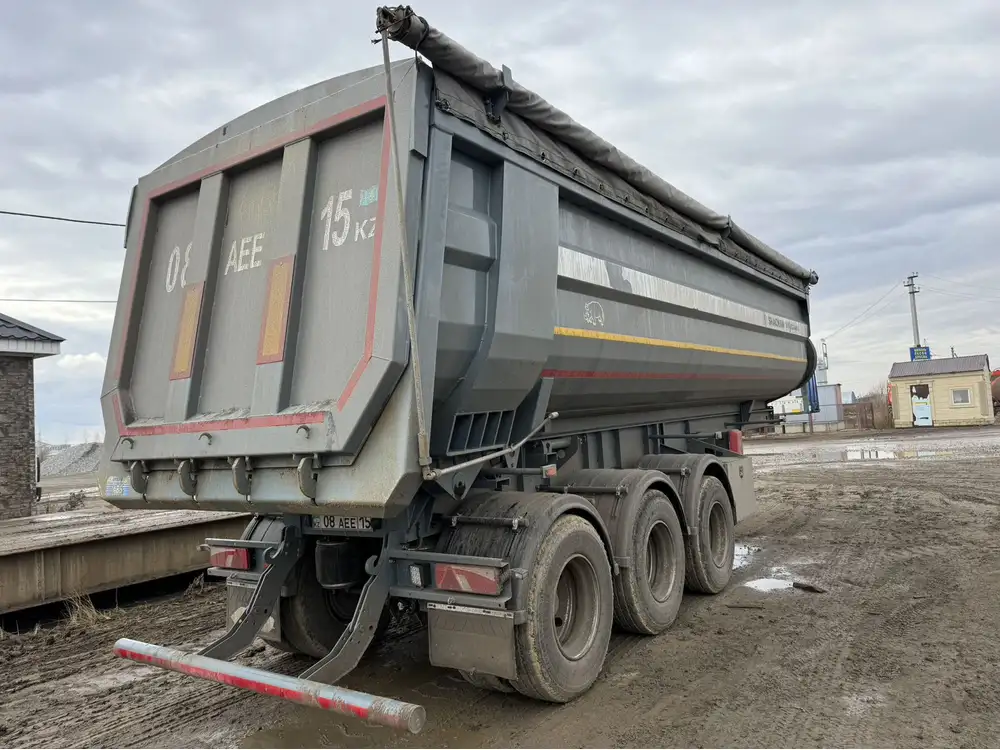
Types of Bulk Tanks
Understanding the different types of bulk tanks is essential for selecting the right one for your specific needs. CarMax Vehicle offers a diverse range of bulk tank semi-trailers tailored to various applications.
1. Liquid Bulk Tanks
Designed for the transportation of liquids such as chemicals, food-grade products, and fuels.
- Stainless Steel Tanks: Ideal for food and pharmaceutical industries due to their non-reactive properties.
- Aluminum Tanks: Suitable for transporting fuels and chemicals, offering lightweight and corrosion resistance.
2. Dry Bulk Tanks
Used for carrying dry materials like grains, fertilizers, cement, and minerals.
- Screw-In Discharge Valves: Facilitate easy unloading of granular materials.
- Flexible Liners: Prevent material adhesion, ensuring efficient discharge.
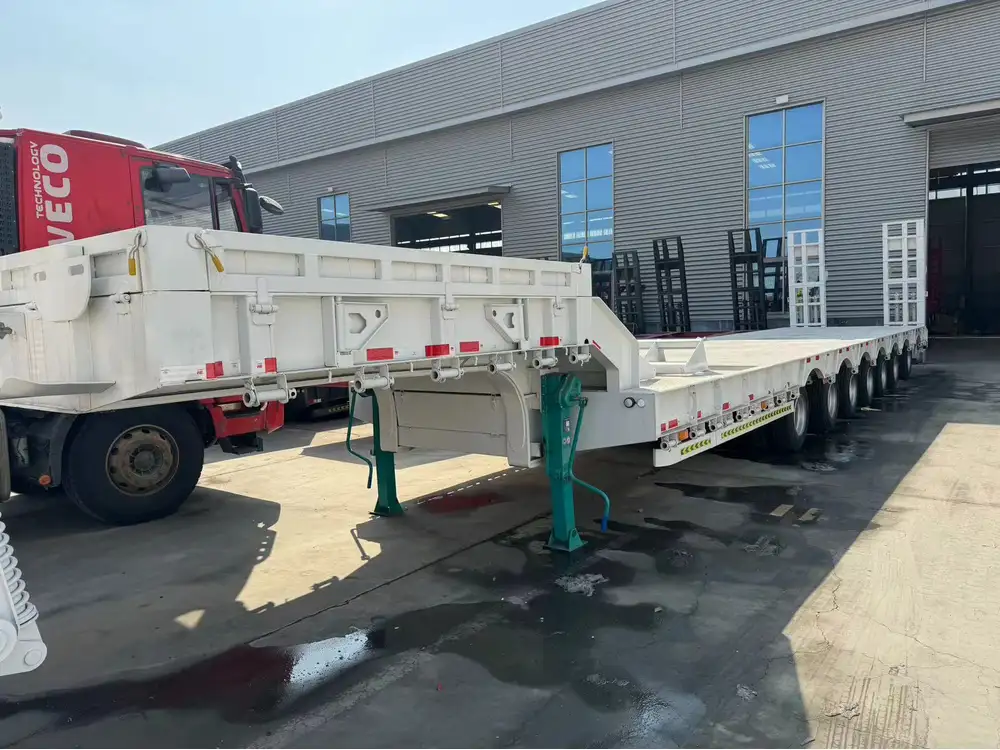
3. Refrigerated Bulk Tanks
Essential for transporting perishable goods like dairy products, beverages, and pharmaceuticals that require temperature control.
- Insulated Walls: Maintain specific temperature ranges during transit.
- Integrated Refrigeration Units: Provide consistent cooling regardless of external conditions.
4. Specialized Bulk Tanks
Customized solutions for unique transportation needs.
- Hydraulic Bulk Tanks: Incorporate hydraulic systems for easy loading and unloading.
- Double-Wall Tanks: Offer additional protection against leaks and spills, enhancing safety.
Applications of Bulk Tanks
Bulk tanks play a crucial role across various industries, facilitating the efficient movement of materials essential for operations.
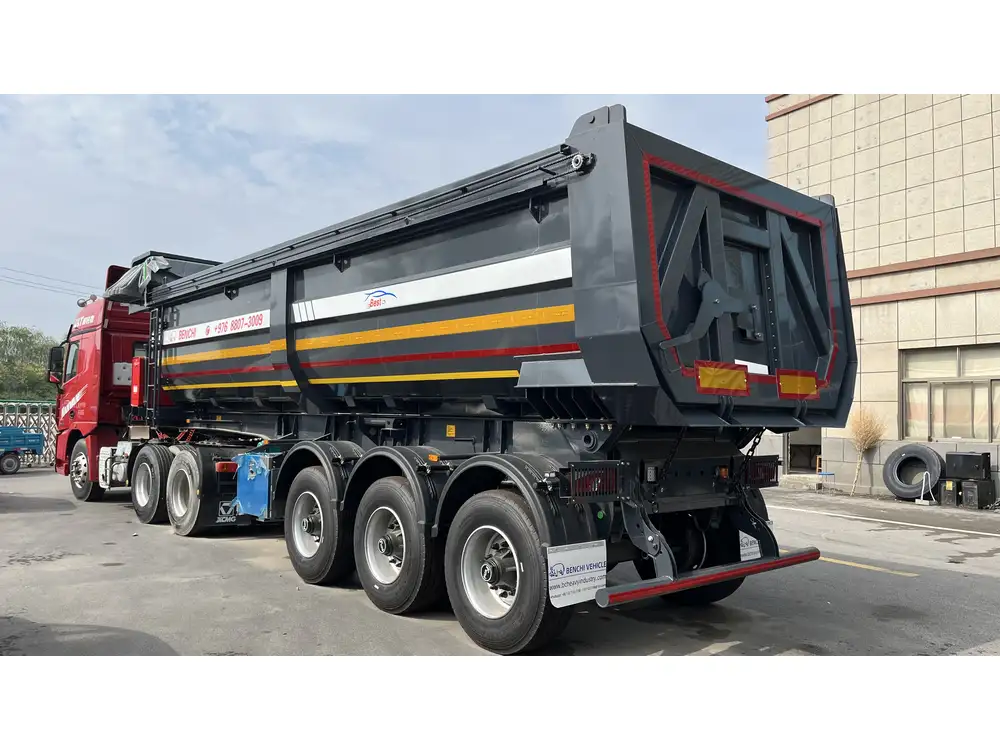
Agriculture
Transporting fertilizers, pesticides, animal feed, and liquid manure.
- Advantages: Ensures even distribution of fertilizers and pesticides, enhancing crop yield and quality.
Food and Beverage
Moving products like milk, juice, oils, and other liquid consumables.
- Advantages: Maintains product integrity and hygiene with food-grade materials and temperature control.
Chemical Industry
Handling hazardous and non-hazardous chemicals securely.
- Advantages: Prevents contamination and ensures compliance with safety regulations.
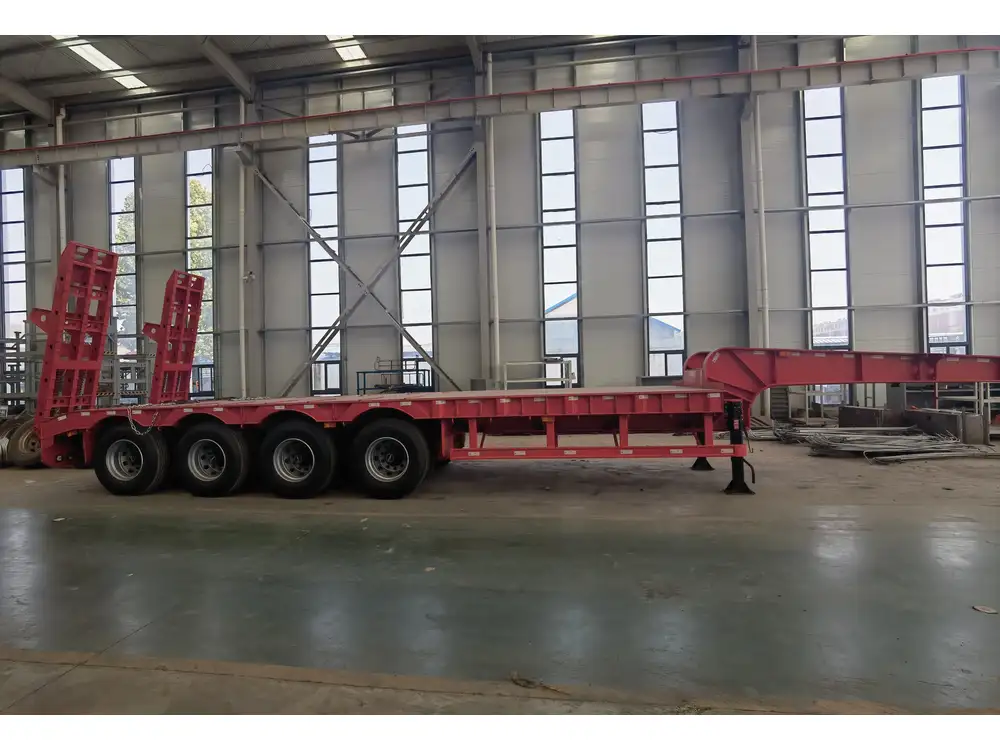
Construction
Delivering cement, sand, gravel, and other building materials.
- Advantages: Facilitates the timely supply of materials to construction sites, ensuring project efficiency.
Pharmaceuticals
Transporting medicines and medical supplies that require strict temperature and contamination controls.
- Advantages: Preserves the efficacy and safety of pharmaceutical products during transit.
Advantages of Using CarMax Vehicle Bulk Tank Trailers
Choosing CarMax Vehicle for your bulk tank needs ensures unmatched quality, durability, and performance. Here’s why our bulk tank trailers stand out in the market:

Superior Build Quality
- Premium Materials: We use high-grade stainless steel, aluminum, and HDPE to ensure longevity and resistance to wear and tear.
- Advanced Manufacturing Techniques: Our state-of-the-art manufacturing processes guarantee precision and consistency in every batch of bulk tanks.
Customization Options
- Tailored Designs: We offer customizable bulk tank solutions to meet specific requirements, whether it’s size, capacity, or additional features.
- Flexible Configurations: Our trailers can be adapted for different types of bulk materials, ensuring versatility in usage.
Safety and Compliance
- Regulatory Adherence: Our bulk tank trailers comply with international safety and transportation standards, ensuring worry-free operations.
- Integrated Safety Features: From spill containment systems to pressure release valves, our tanks are equipped with the latest safety mechanisms.

Efficiency and Performance
- Optimized Design: Our bulk tanks are designed for easy loading and unloading, reducing turnaround time and increasing operational efficiency.
- Temperature Control: For refrigerated bulk tanks, our advanced insulation and refrigeration systems maintain desired temperatures reliably.
Exceptional Customer Support
- Comprehensive After-Sales Service: We provide ongoing support, maintenance, and training to ensure your bulk tank trailers perform optimally.
- Expert Consultation: Our team of experts assists you in selecting the right bulk tank solution tailored to your needs.
Comparing Bulk Tank Types: A Detailed Analysis
Choosing the right bulk tank involves understanding the specific requirements of your application. Below is a comparative analysis of different bulk tank types to help you make an informed decision.
| Feature | Liquid Bulk Tanks | Dry Bulk Tanks | Refrigerated Bulk Tanks | Specialized Bulk Tanks |
|---|---|---|---|---|
| Material | Stainless Steel, Aluminum | Steel, Aluminum, HDPE | Insulated Materials | Varies by specialization |
| Typical Capacity | 10,000 – 1,000,000 Liters | 5,000 – 500,000 Liters | 10,000 – 1,000,000 Liters | Custom capacities |
| Temperature Control | Optional | Not typically required | Essential | Depends on design |
| Discharge Mechanism | Valves, Pumps | Screw-In Valves, Pneumatic | Valves integrated with cooling | Hydraulic, Pneumatic |
| Primary Use Cases | Chemicals, Fuels, Food | Grains, Fertilizers, Cement | Perishables, Pharmaceuticals | Specialized industries |
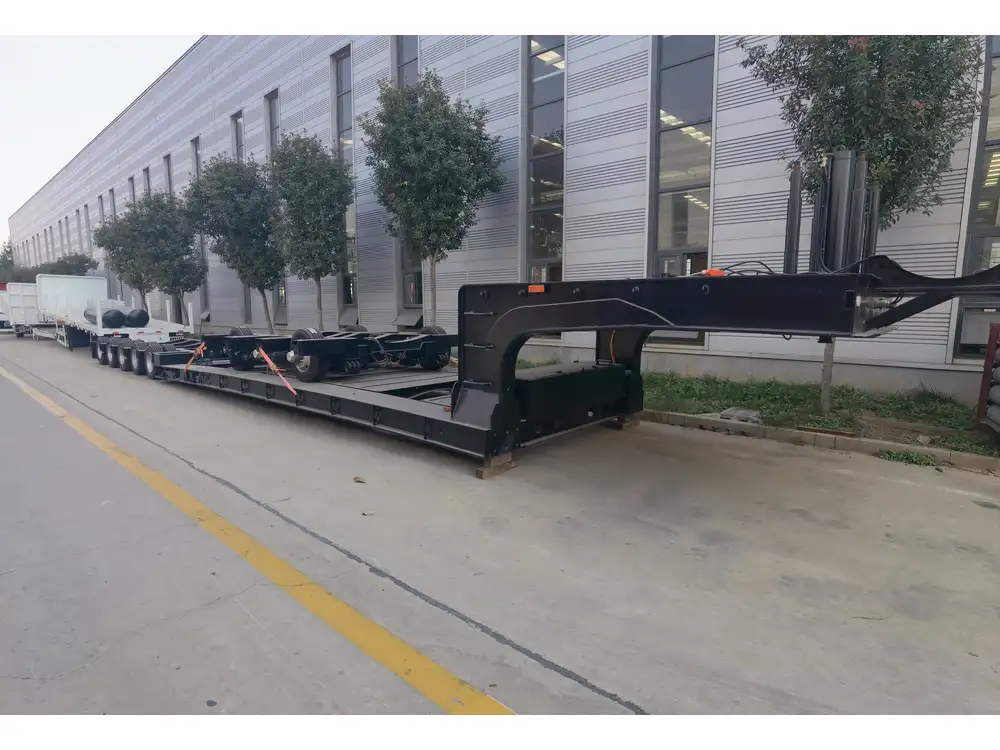
Step-by-Step Guide to Selecting the Right Bulk Tank
Selecting the appropriate bulk tank involves several critical steps to ensure it meets your operational needs effectively.
1. Identify Material Type
Determine whether you need to transport liquids, dry goods, refrigerated items, or specialized materials. This will guide the material and design choices for the bulk tank.
2. Assess Capacity Requirements
Evaluate the volume of material you need to transport regularly. Choosing a tank with appropriate capacity ensures efficiency and minimizes operational costs.

3. Consider Environmental Factors
Assess the environmental conditions during transportation, such as temperature extremes or exposure to corrosive elements. This will influence the choice of materials and insulation requirements.
4. Evaluate Safety Features
Ensure the bulk tank has necessary safety mechanisms like spill containment, pressure release valves, and secure locking systems to comply with safety standards and prevent accidents.
5. Review Regulatory Compliance
Verify that the bulk tank meets all relevant industry standards and regulations, ensuring legal compliance and avoiding potential fines or operational disruptions.
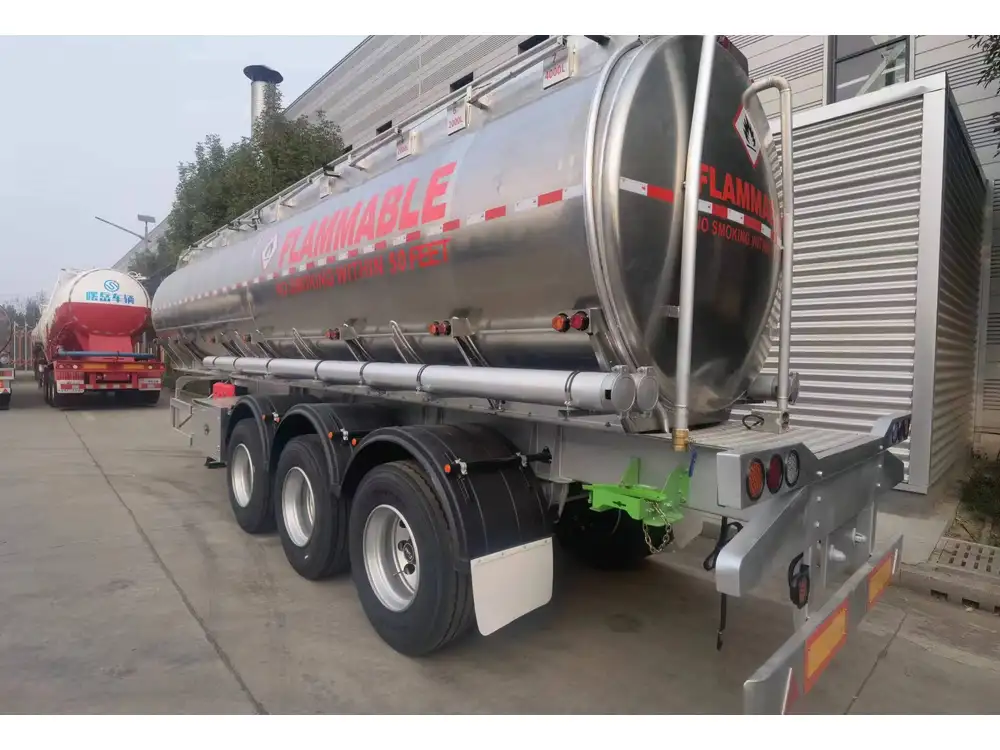
6. Explore Customization Options
If your application has unique requirements, consider bulk tanks that offer customization in terms of size, configuration, and additional features to meet specific needs.
7. Budget Considerations
Balance the cost with quality and features. Investing in a high-quality bulk tank ensures longevity and reduces maintenance costs in the long run.
Maintenance and Care for Bulk Tanks
Proper maintenance is essential to ensure the longevity and performance of bulk tanks. Here are some best practices recommended by CarMax Vehicle:

Regular Inspections
- Visual Checks: Inspect for signs of corrosion, leaks, or damage regularly.
- Mechanical Assessments: Ensure all valves, pumps, and other mechanical components are functioning correctly.
Cleaning Procedures
- Scheduled Cleaning: Implement routine cleaning schedules to prevent material buildup and contamination, especially for food-grade and pharmaceutical bulk tanks.
- Appropriate Cleaning Agents: Use cleaning agents compatible with the tank material to avoid degradation.
Preventive Maintenance
- Seal Integrity: Regularly check and replace seals to prevent leaks.
- Refrigeration Systems: For refrigerated bulk tanks, maintain refrigerant levels and ensure cooling systems operate efficiently.
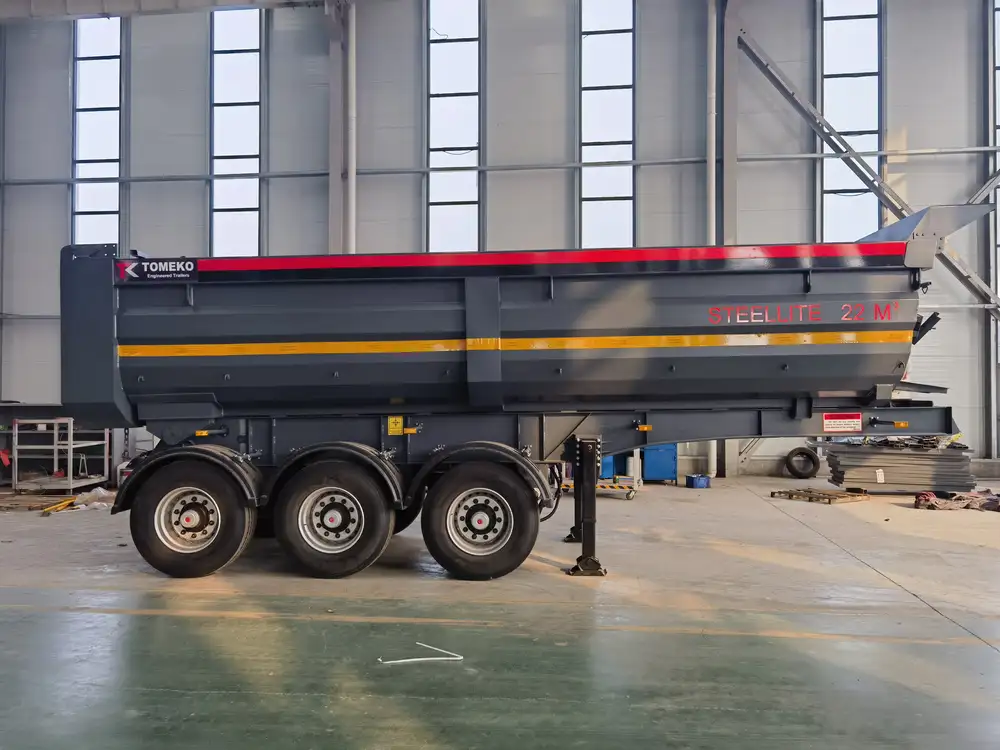
Documentation and Record-Keeping
- Maintenance Logs: Keep detailed records of all maintenance activities to track the tank’s condition and plan future upkeep.
- Compliance Records: Maintain documentation to demonstrate adherence to regulatory standards during inspections.
Innovations in Bulk Tank Technology by CarMax Vehicle
At CarMax Vehicle, we are committed to integrating the latest technological advancements into our bulk tank designs to enhance performance and user experience.
Smart Monitoring Systems
Our bulk tanks are equipped with IoT-enabled sensors that provide real-time data on temperature, pressure, and tank integrity, enabling proactive maintenance and operational efficiency.

Automated Loading and Unloading
Advanced automation features streamline the loading and unloading processes, reducing manual labor and minimizing the risk of spills or contamination.
Sustainable Materials
We prioritize the use of sustainable and recyclable materials in our bulk tanks, aligning with global environmental standards and reducing the carbon footprint of transportation operations.
Modular Designs
Our modular bulk tanks allow for easy customization and scalability, enabling businesses to adapt to changing transportation needs without significant infrastructure changes.
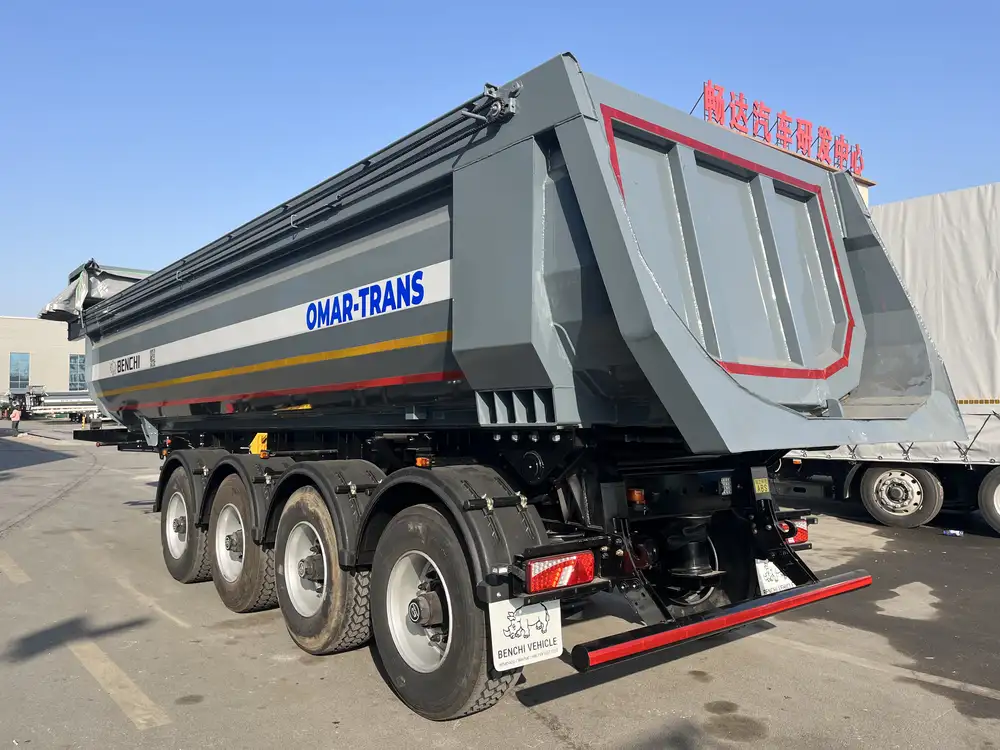
Why Choose CarMax Vehicle for Bulk Tank Solutions
CarMax Vehicle stands out as a leader in the bulk tank manufacturing sector, offering unparalleled quality, customization, and support. Here’s what sets us apart:
Expertise and Experience
With years of experience in the heavy industry, our team possesses the expertise to design and manufacture bulk tanks that meet the highest standards of quality and functionality.
Quality Assurance
Our stringent quality control processes ensure that every bulk tank leaving our facility meets or exceeds industry standards, providing reliability and peace of mind to our clients.

Comprehensive Support
From initial consultation to post-purchase maintenance, we offer comprehensive support to ensure our clients achieve optimal performance from their bulk tank solutions.
Competitive Pricing
We offer high-quality bulk tanks at competitive prices, delivering excellent value without compromising on features or durability.
Global Reach
Our bulk tank trailers are utilized globally, reflecting our ability to meet diverse transportation needs across different regions and industries.
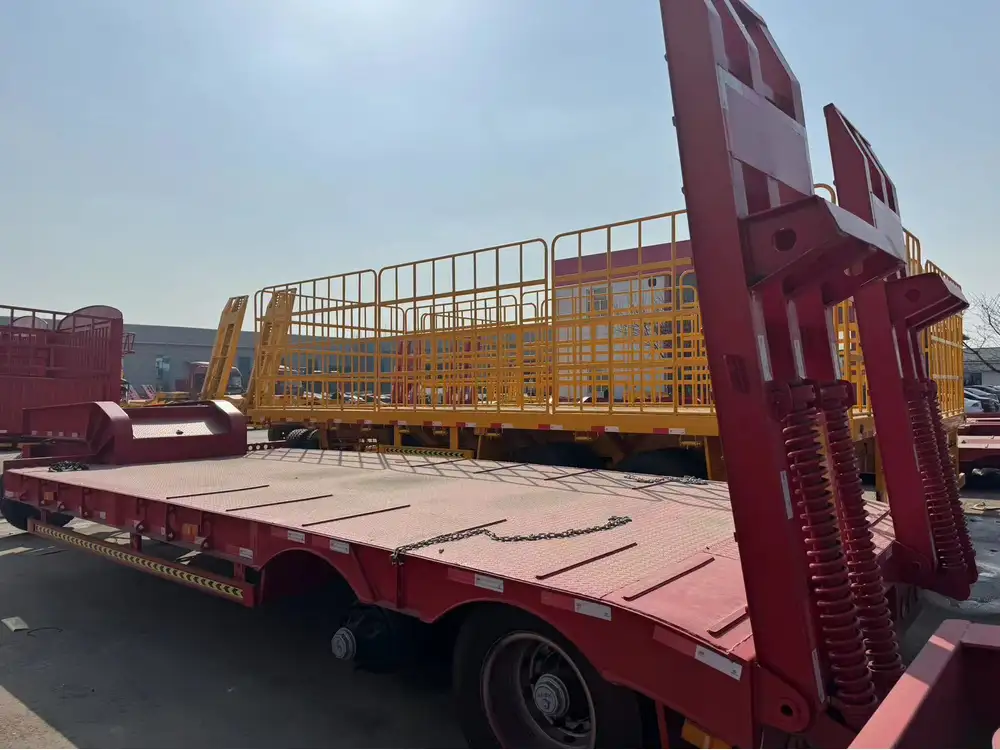
Case Studies: Success Stories with CarMax Vehicle Bulk Tanks
Case Study 1: Agricultural Efficiency
A leading agricultural supply company partnered with CarMax Vehicle to upgrade their fertilizer transportation fleet. By integrating our dry bulk tank trailers with screw-in discharge valves, they experienced a 30% increase in unloading speed and a significant reduction in material waste.
Case Study 2: Pharmaceutical Precision
A pharmaceutical company required refrigerated bulk tanks to transport temperature-sensitive medicines. CarMax Vehicle provided customized insulated bulk tanks with integrated refrigeration units, ensuring the products remained within required temperature ranges, thereby maintaining their efficacy and safety.
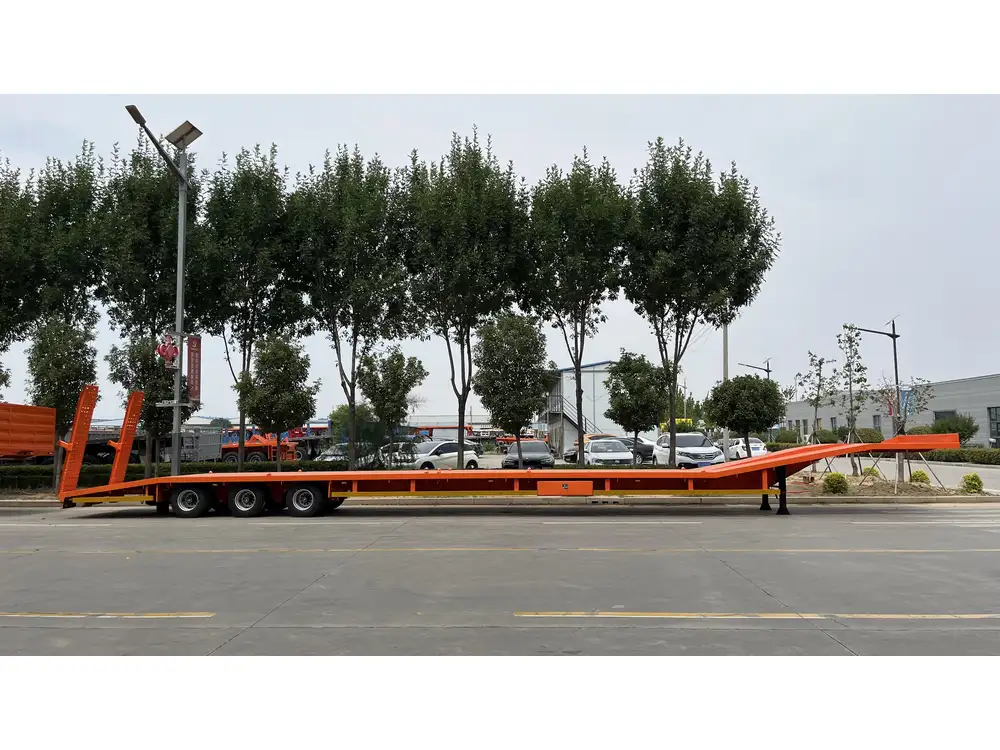
Case Study 3: Chemical Safety
A chemical manufacturing firm sought bulk tanks capable of safely transporting hazardous liquids. Our stainless steel liquid bulk tanks with advanced safety features and spill containment systems enabled them to comply with stringent safety regulations, preventing accidents and enhancing operational safety.
Future Trends in Bulk Tank Transportation
The bulk tank transportation industry is evolving with advancements in technology and changing market demands. Here are some future trends that CarMax Vehicle is embracing:
Electrification of Trailers
The shift towards electric-powered semi-trailers aims to reduce carbon emissions and fuel costs. We are developing electric bulk tank trailers that offer sustainable transportation solutions without compromising on performance.
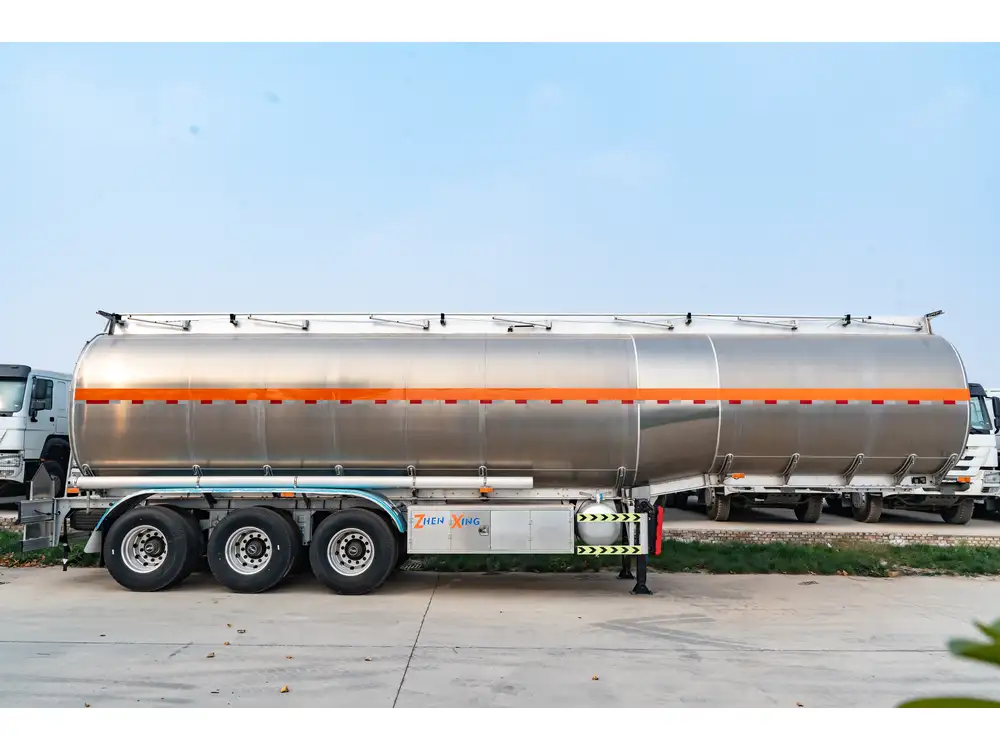
Enhanced Connectivity
Future bulk tanks will feature enhanced connectivity, allowing for seamless integration with fleet management systems. This will enable real-time tracking, predictive maintenance, and improved operational efficiency.
Advanced Materials
The use of advanced, lightweight materials will continue to grow, providing bulk tanks that are both durable and fuel-efficient. Innovations in material science will lead to tanks that offer better resistance to corrosion and wear.
Automation and AI Integration
Automation and artificial intelligence will play a significant role in optimizing transportation logistics, from route planning to load management, making bulk tank operations smarter and more efficient.
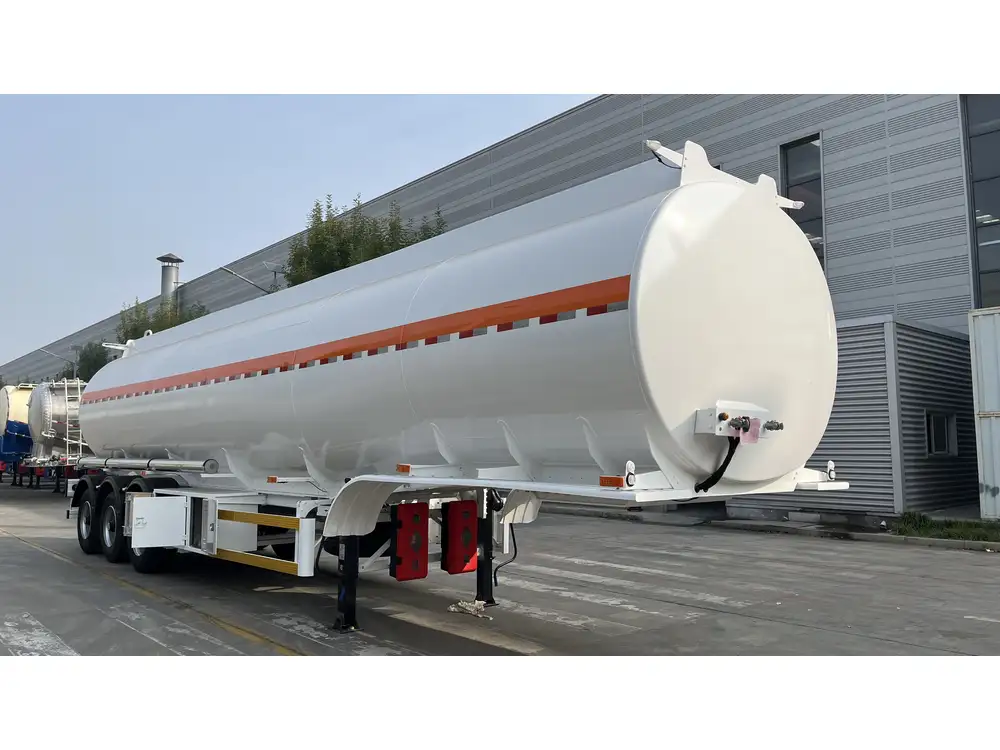
Conclusion
Bulk tanks are indispensable in the transportation of various materials across multiple industries. At CarMax Vehicle, we pride ourselves on delivering high-quality bulk tank semi-trailers that ensure safety, efficiency, and reliability. By understanding the different types of bulk tanks, their applications, and the latest technological advancements, businesses can make informed decisions that enhance their operational effectiveness. Partner with CarMax Vehicle to leverage our expertise and superior bulk tank solutions for your transportation needs.
Frequently Asked Questions
1. What materials are bulk tanks typically made from?
Bulk tanks are commonly constructed from stainless steel, aluminum, or high-density polyethylene (HDPE). The choice of material depends on the type of material being transported and the specific requirements of the application, such as corrosion resistance or temperature control.

2. How do I maintain the integrity of a bulk tank during transportation?
Regular maintenance is crucial for ensuring the integrity of a bulk tank. This includes routine inspections for signs of wear or corrosion, proper cleaning procedures to prevent contamination, and ensuring that all safety mechanisms like valves and seals are functioning correctly.
3. Can bulk tanks be customized to meet specific transportation needs?
Yes, bulk tanks can be customized in terms of size, capacity, discharge mechanisms, insulation, and additional safety features. CarMax Vehicle offers tailored bulk tank solutions to meet the unique requirements of various industries and applications.
4. What safety features are included in CarMax Vehicle bulk tank trailers?
Our bulk tank trailers are equipped with advanced safety features such as spill containment systems, pressure release valves, secure locking mechanisms, and reinforced structures to prevent accidents and ensure compliance with safety regulations.
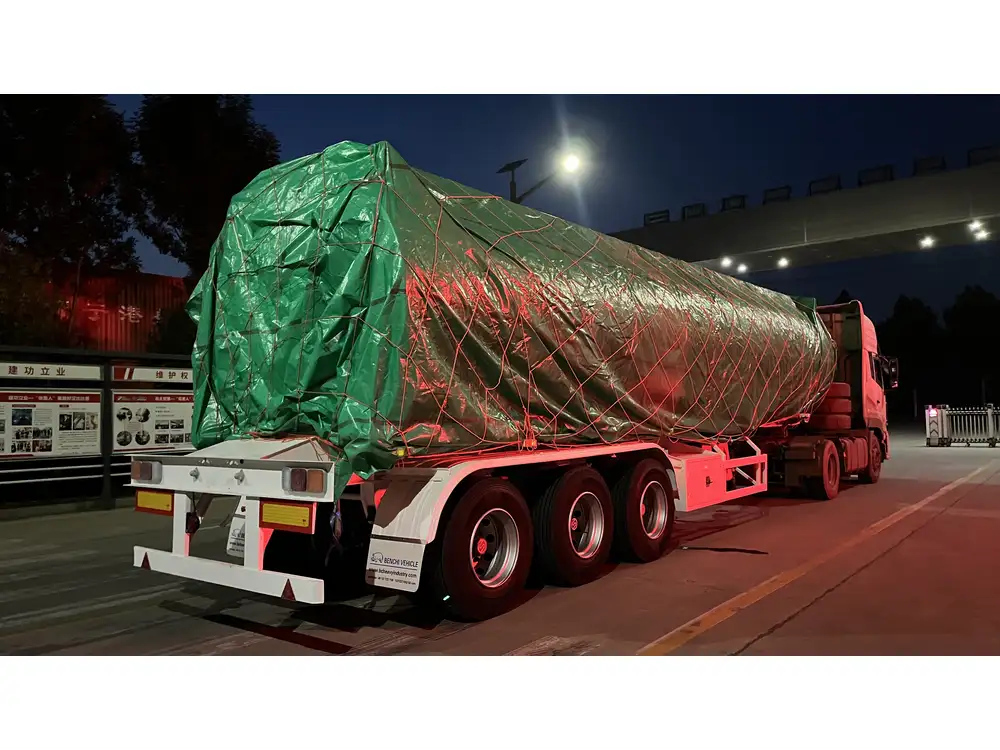
5. What industries benefit most from using bulk tanks?
Bulk tanks are essential in industries such as agriculture, food and beverage, chemicals, construction, and pharmaceuticals. They facilitate the efficient and safe transportation of liquids, dry goods, refrigerated items, and specialized materials critical to these sectors.



